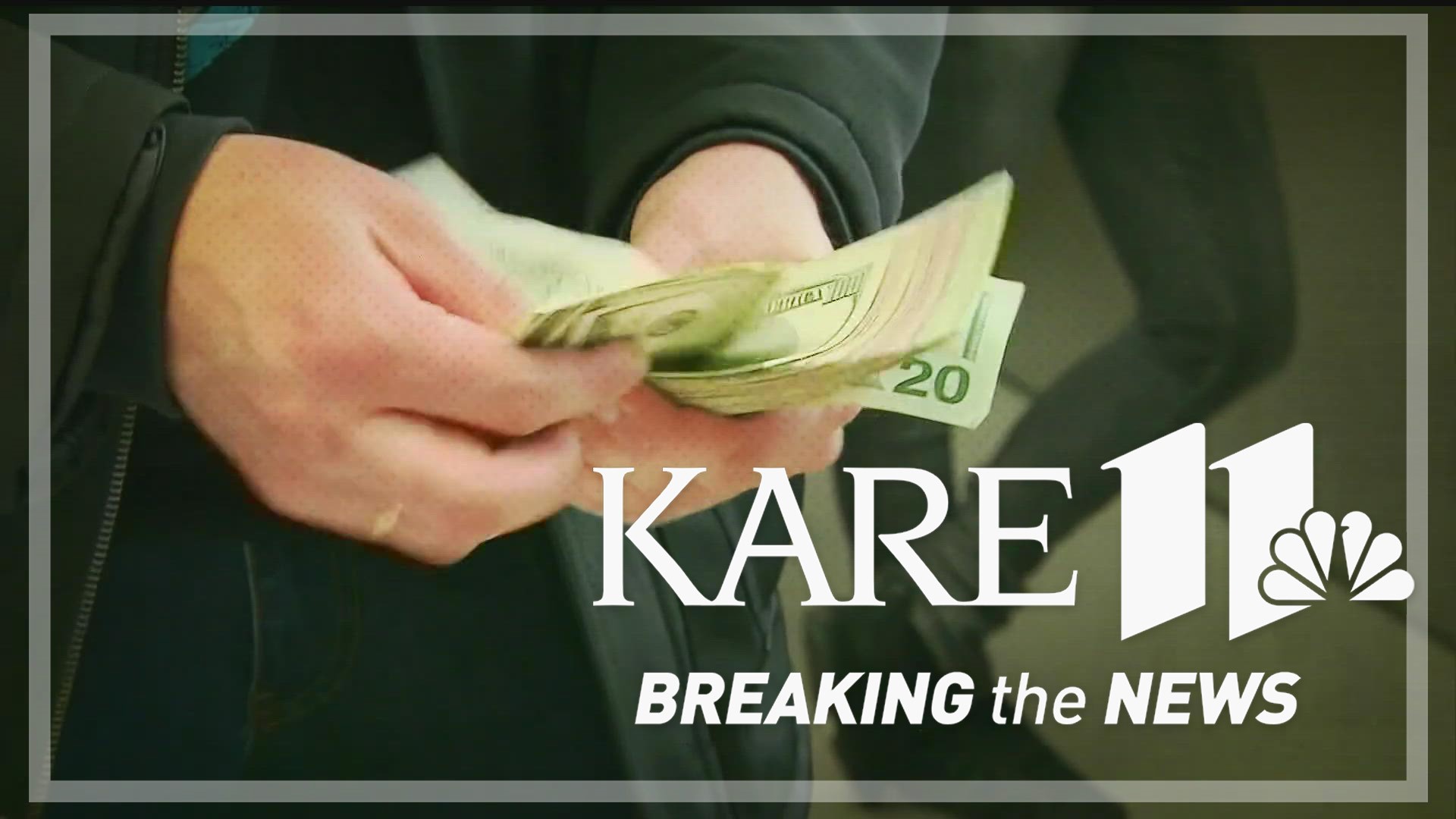MINNEAPOLIS — If you're struggling to make sense of where our economy is going in 2023, it's OK. So are economists.
"There was almost a parody of a survey of economists that happened a couple weeks ago," said Tyler Schipper, an economist and professor at the University of St Thomas. "The national association of business economists did a survey of their members and it said that 52% of economists think that there is better than a 50/50 chance of there being a recession in 2023."
Kent Erdahl: Come on, 52%?
Schipper: That was two weeks ago, so I think that number will have changed and less than 50% would now think that we are going into a recession in 2023, so there's your good news.
Erdahl: All I hear is, that's a coin flip.
Schipper: That's a fair way to put it, and I don't think this report necessarily changed it from a coin flip.
On one hand, Schipper points out that the U.S. GDP did flip from negative during the first two quarter of last year, to two straight quarters of growth. But he says it is also important to note that growth did slow from 3.2 to 2.9 percent.
"The good news here is this was the economy being resilient in the second half of 2022," he said. "I think that's kind of the important story. Things will be tougher in 2023, but maybe not drastic like we think about big recessions."
Chris Farrell, senior economics contributor for MPR News and Marketplace, says despite several causes for concern — such as evidence of a housing market recession and recent tech industry layoffs — he remains optimistic because unemployment remains low and consumer spending has held relatively steady.
"This economy is solid. I keep coming back to a 3.5% unemployment rate," Farrell said. "The layoffs have been mounting but remain largely concentrated in the tech sector, and there still is a lot of hiring going on. As long as people have jobs and they are earning an income, they will drive the economy. Meanwhile, inflation has been coming down."
While he says a recession remains a possibility, he's not buying into any doomsday predictions.
"We're telling a story about an economy that is slowing down," Farrell said. "The consumers are getting a little more cautious, in the GDP report there is evidence that businesses are investing at a more cautious pace, but economists have a terrible track record at forecasting recessions. It's absolutely awful. They have good reasons why they're saying we will probably have a recession in 2023, but again, we keep getting reports that say, well... not yet."
One local economist isn't going to disagree.
Schipper: Yes, we're wrong a lot. I would be the first person to tell you that.
Erdahl: Would you rather be wrong to the positive side or wrong to the negative side?
Schipper: There's a good argument here that I'd rather be the optimist. If you have pundits saying things are looking good, people behave like they look good and things tend to end up being good. On the other hand, if everyone is really being pessimistic and that starts to trickle into consumer sentiment, it's a self-fulfilling sentiment at that point.
Watch more Breaking The News:
Watch all of the latest stories from Breaking The News in our YouTube playlist:

